Federal officials, healthcare providers, and activists converged at a Walgreens in downtown Washington, D.C., earlier this month to commemorate National HIV Testing Day. The event, part of a national effort led by Walgreens and KFF’s Greater Than HIV initiative, provided free HIV testing at over 550 stores nationwide.
Assistant Secretary for Health Admiral Rachel Levine, a doctor and the first out transgender person confirmed to a federal administration position by the U.S. Senate, attended the event. Accompanying her were Jonathan Mermin, director of the Center for Disease Control and Prevention’s National Center for HIV, Viral Hepatitis, STD, and TB Prevention, and Francisco Ruiz, director of the White House Office of National AIDS Policy. The Advocate joined Levine exclusively for the visit.
 Christopher Wiggins
Christopher Wiggins
“Prevention is everything,” Corey Howell from the Washington Health Institute told The Advocate. “When you know your status, it empowers you about your health.”
The Institute played a central role, offering rapid tests for syphilis, HIV, and hepatitis C through their mobile health unit, emphasizing accessibility and immediate care.
“Many people think that HIV is no longer a concern,” Howell noted. “By providing onsite testing and linking people to care, we are one step closer to ending the HIV epidemic.”
Levine spoke with passion about the troubling resurgence of syphilis, a disease that had seemed to be under control. “Syphilis is a sexually transmitted infection that has been around for centuries,” she explained in an exclusive interview with The Advocate. “We are seeing increasing rates of syphilis both globally and in the United States.”
 Christopher Wiggins
Christopher Wiggins
Dr. Jose Bordon, CEO of the Washington Health Institute, detailed the rapid testing procedures available at the event. “The HIV test is a rapid HIV test, fantastic for PrEP or any test,” he said. “The syphilis test is from Diagnostics Direct and takes 15 minutes, and the hepatitis C test is also rapid.”
Levine highlighted the importance of renewed focus on syphilis testing. “Many providers are not thinking of syphilis because it wasn’t prominent in the year 2000,” she said. “We are seeing a significant increase in cases, including congenital syphilis in newborns.”
She continued, detailing the symptoms of syphilis and the necessity of screening. “Syphilis, when I learned in medical school more than 40 years ago, is the great imitator. It can look like many things. The usual sign of primary syphilis is what’s called a chancre, traditionally a painless ulcer at the site of infection. This first sign appears after a number of weeks and goes away. Later on, people might feel quite sick, like the flu, with fever, chills, and a rash that can look like many different things. It can be on the palms of the hands, soles of the feet, or generalized throughout the body. If still not treated, it can lie quiet for years and then show up as heart disease and neurological diseases, known as tertiary syphilis. We want to prevent that completely.”
Screening for syphilis is important, Levine emphasized. “If you’re worried about sexually transmitted infections, go see your doctor. We’re training doctors about STIs, particularly syphilis, so that they can recognize, diagnose, and test for it. If you’re being tested for HIV, you should be tested for syphilis and hepatitis C. Today at Walgreens, we’re screening people for all three.”
 Christopher Wiggins
Christopher Wiggins
Ruiz expressed gratitude for the community representation and efforts by the Washington Health Institute and Walgreens. “Thank you for representing the community within your work,” he said. “Ensuring that our work represents the communities we serve is important.”
Mermin underscored the importance of the event. “Knowledge saves lives,” he said. “Thank you for allowing us to join this event and disrupt it at the same time.”
The Washington Health Institute’s commitment to care extended beyond testing. “We provide Uber rides to ensure patients get to and from our office,” Howell shared. “We recently had a reactive syphilis test at one of our community events and worked with the individual to ensure they got linked to care.”
 Christopher Wiggins
Christopher Wiggins
Levine spoke further on the importance of comprehensive health care for the LGBTQ community, especially during Pride Month. “Happy Pride to everyone. Pride represents hope for the future, taking care of ourselves, our health, and our community,” she said. “People at risk of these infections need to get screened, properly diagnosed, and treated. For HIV, if you’re negative, we have PrEP to prevent HIV if someone’s at risk. If positive, we have antiretroviral therapy (ART), leading to undetectable and untransmittable status, known as U=U.”
Levine also emphasized her mantra: “Treatment is prevention, and prevention is treatment; they go together. If you’re getting tested for HIV, also get tested for hepatitis C, which can be cured with medication, and syphilis, which can be cured with antibiotics.”
 Christopher Wiggins
Christopher Wiggins
Levine also explained the concept of a syndemic, which refers to the synergistic interaction between multiple health threats exacerbated by societal circumstances, contributing to an excess disease burden. “We’re seeing the clustering of HIV, hepatitis C, and syphilis, which is why it’s crucial to test for all three simultaneously,” she noted.
Levine clarified some common questions about hepatitis C and the availability of vaccines. “There is no vaccine for HIV, hepatitis C, or syphilis. There is treatment for all three. We cannot cure HIV, but we can cure hepatitis C and syphilis.”
 Christopher Wiggins
Christopher Wiggins
As the event drew to a close, the collective message was clear: the fight against HIV and STIs requires ongoing education, outreach, and community support. “We are evolving in the landscape of prevention and treatment,” Levine concluded. “It’s crucial to take care of ourselves and our community, not just during Pride Month, but all year long.”


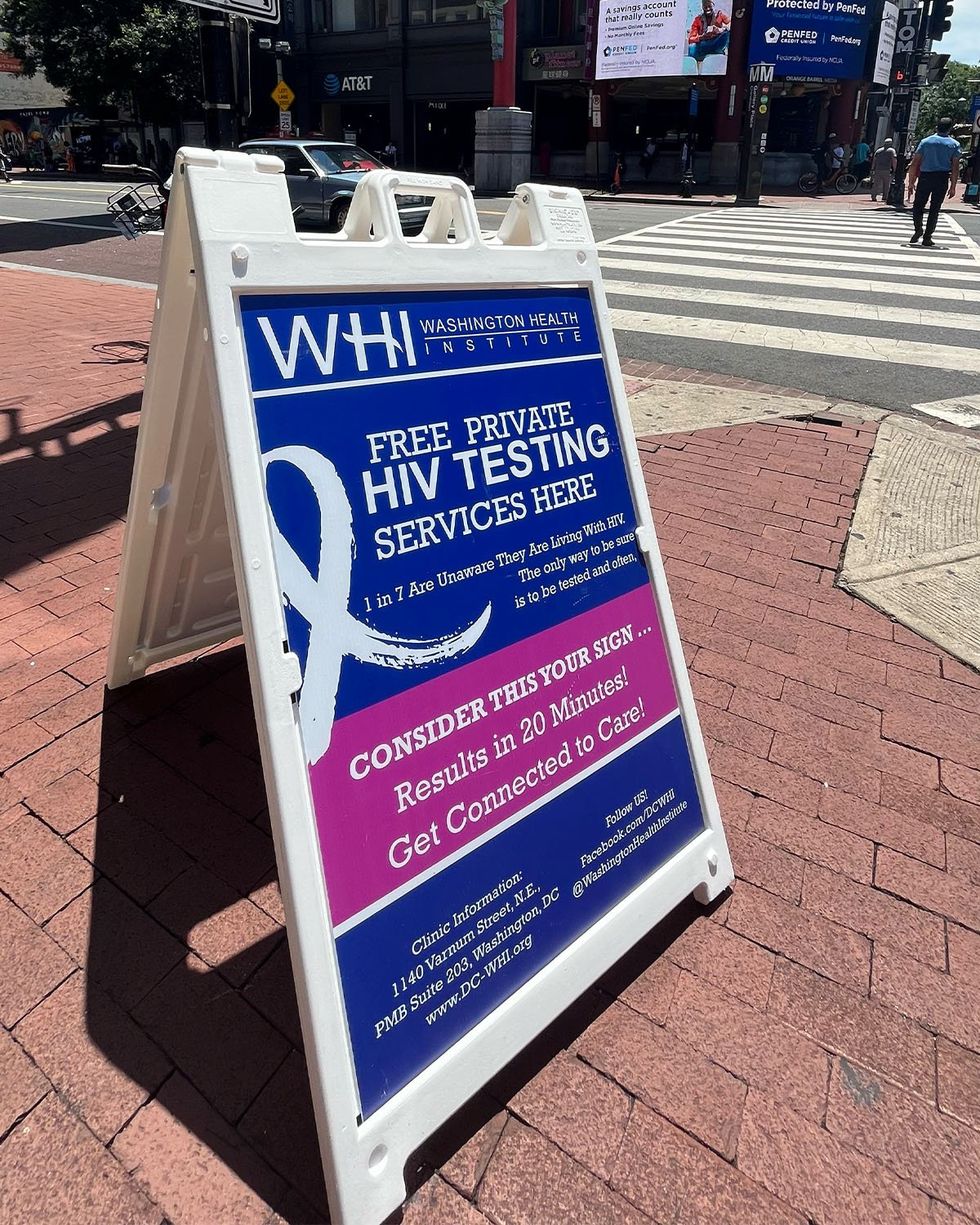 Christopher Wiggins
Christopher Wiggins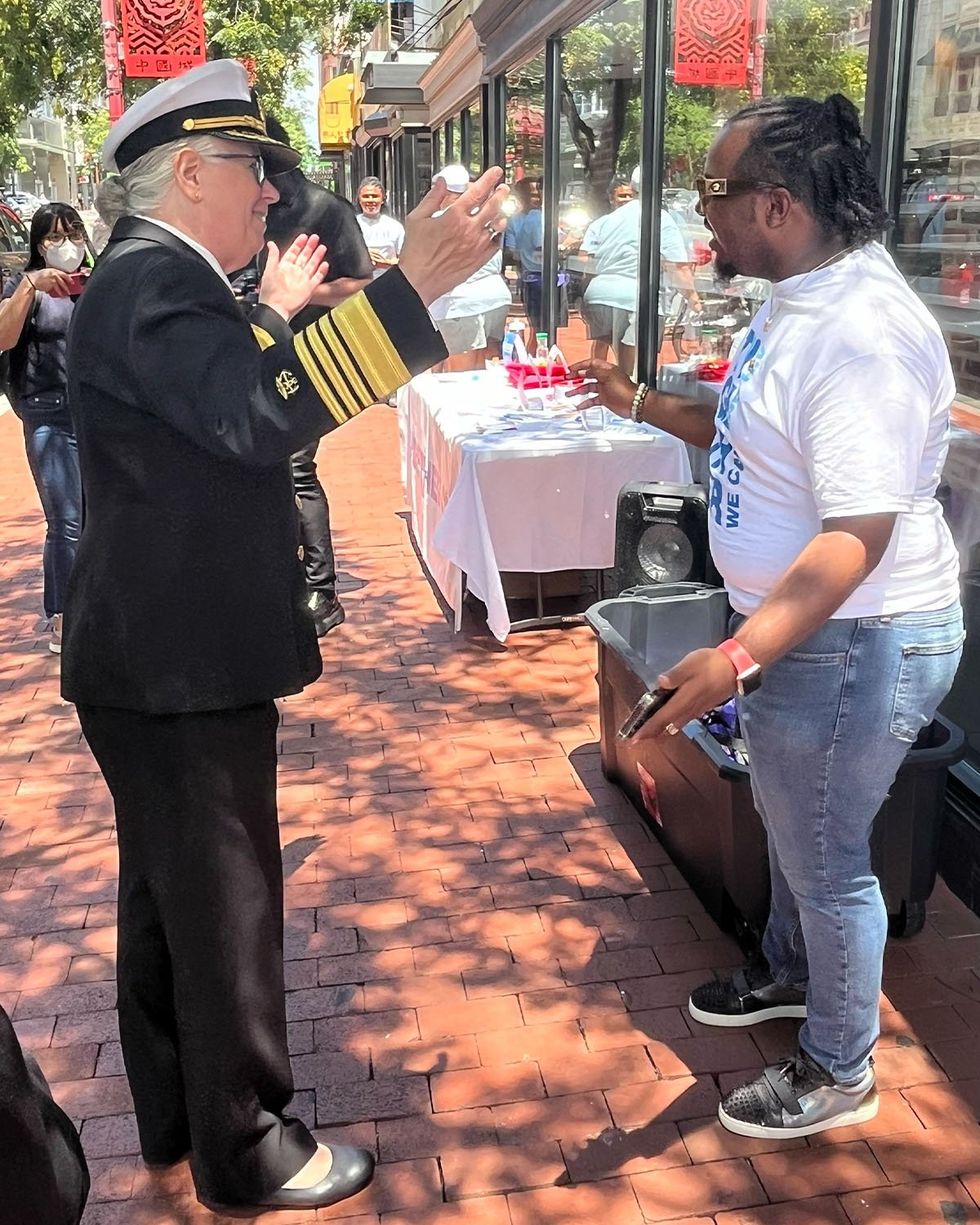 Christopher Wiggins
Christopher Wiggins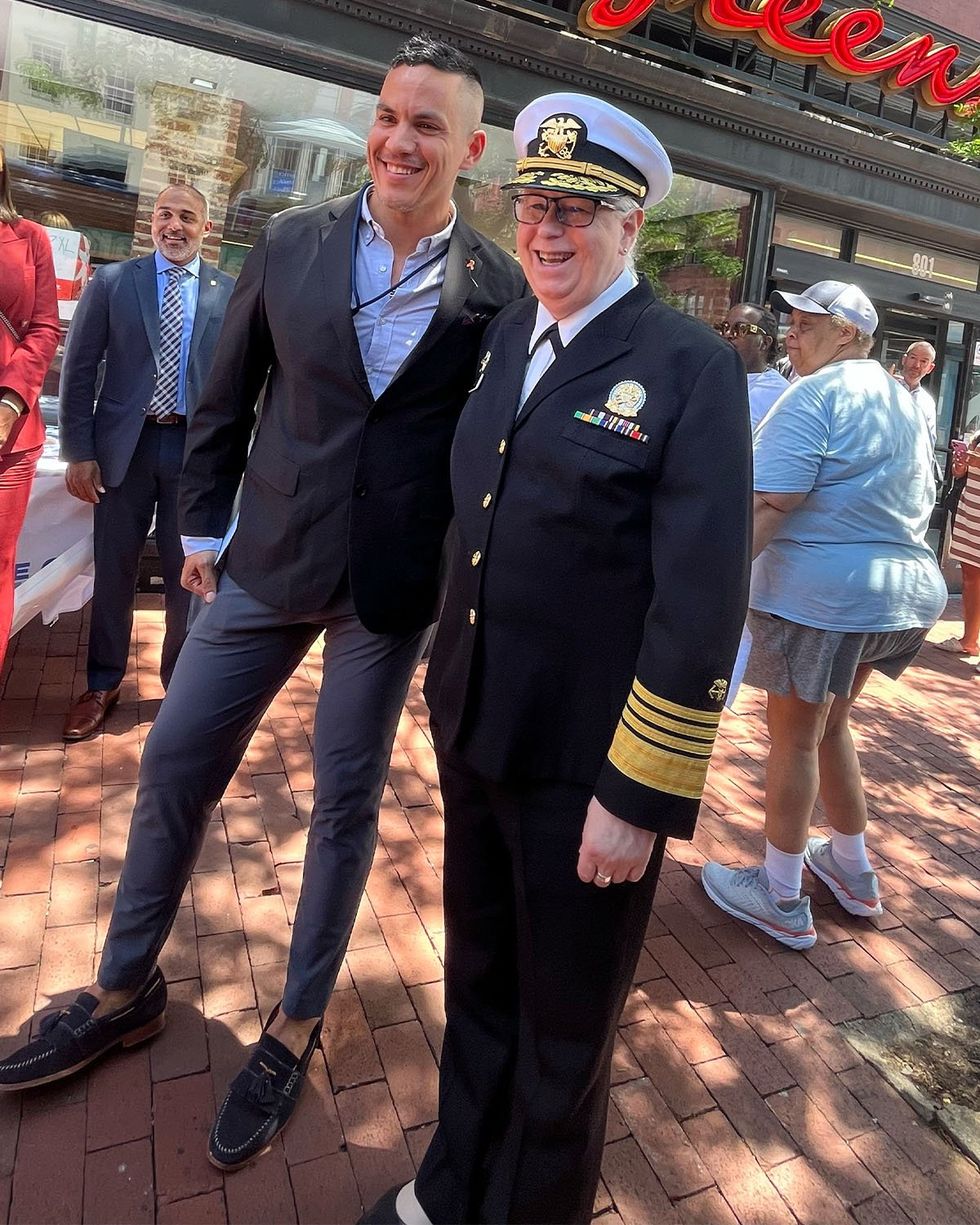 Christopher Wiggins
Christopher Wiggins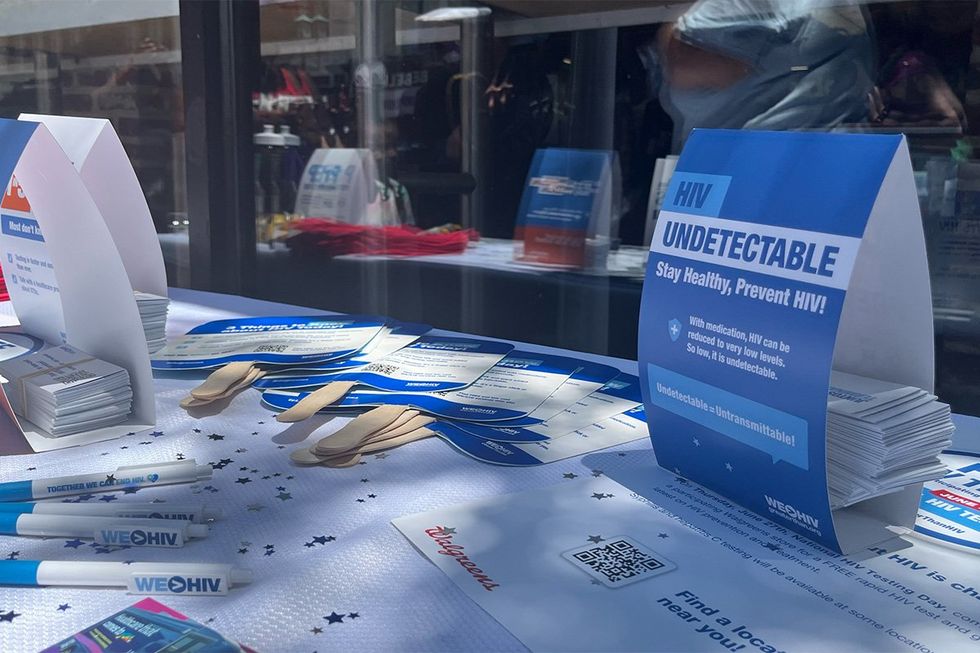 Christopher Wiggins
Christopher Wiggins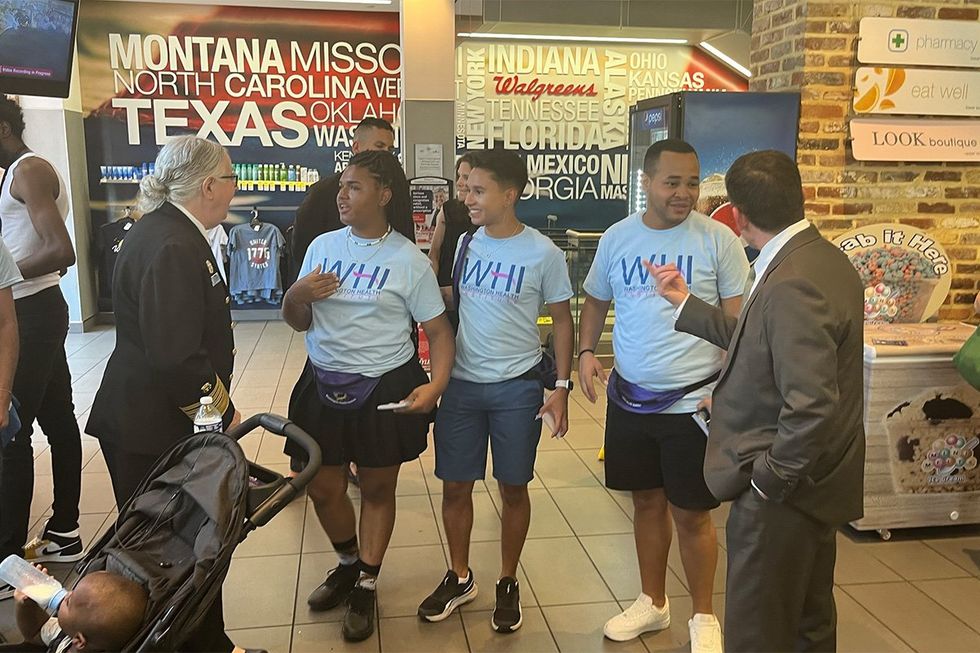 Christopher Wiggins
Christopher Wiggins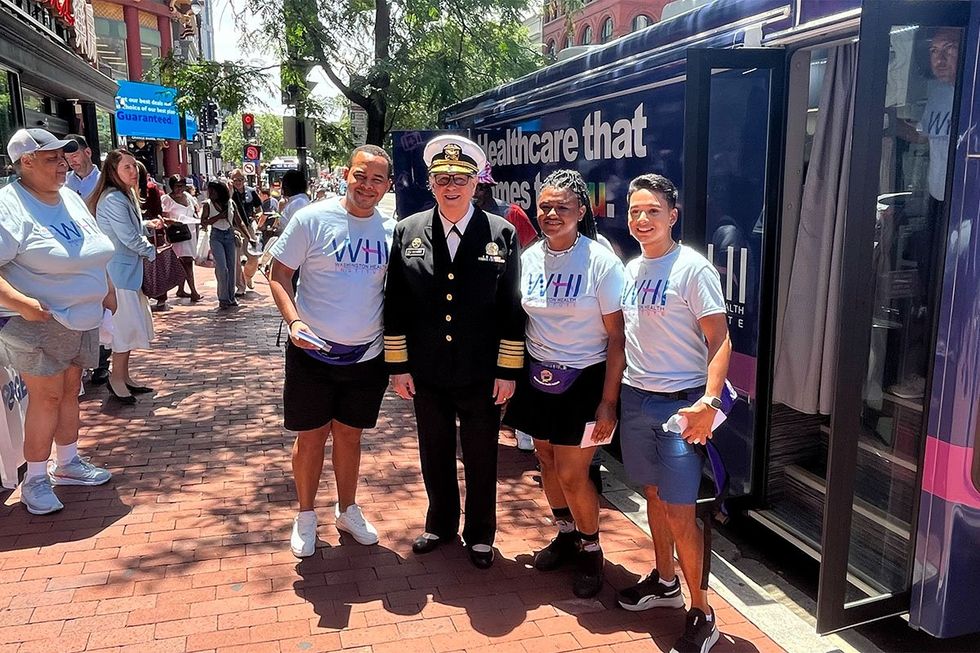 Christopher Wiggins
Christopher Wiggins


































































Charlie Kirk DID say stoning gay people was the 'perfect law' — and these other heinous quotes